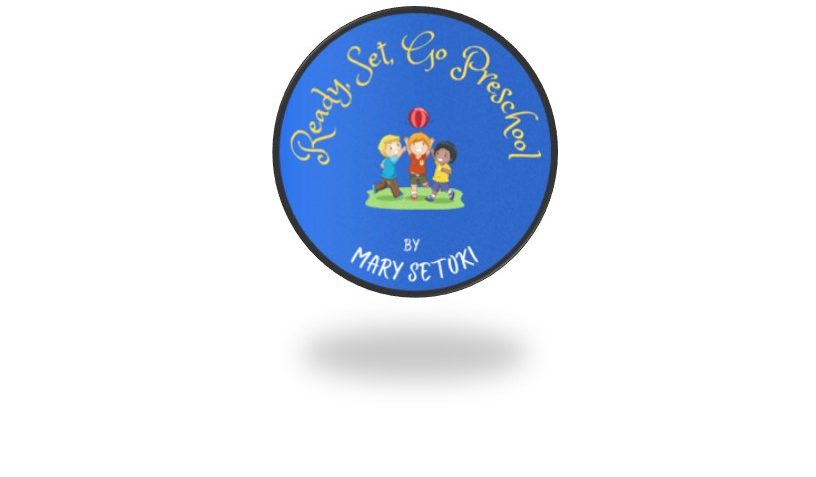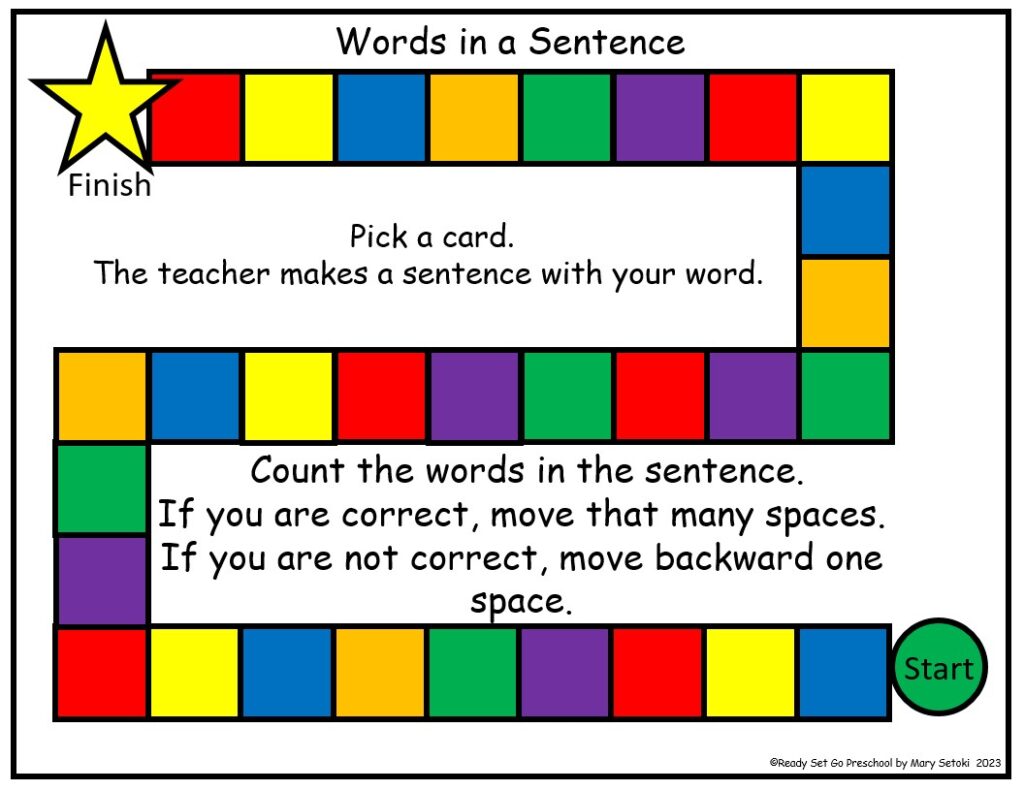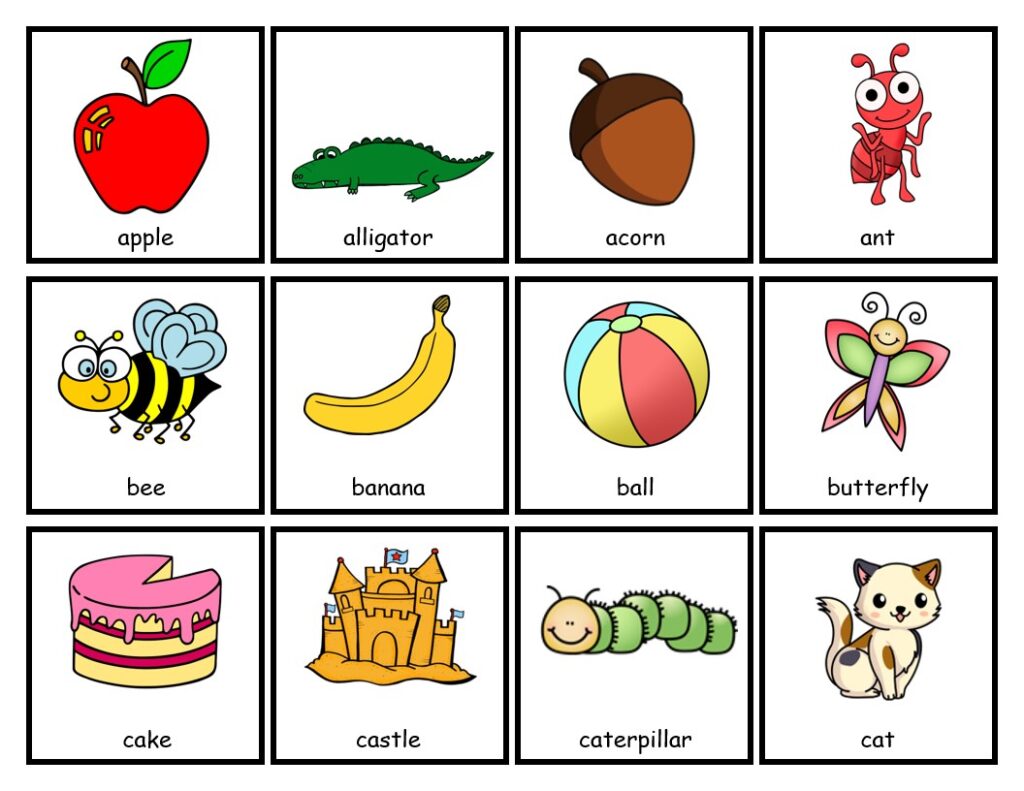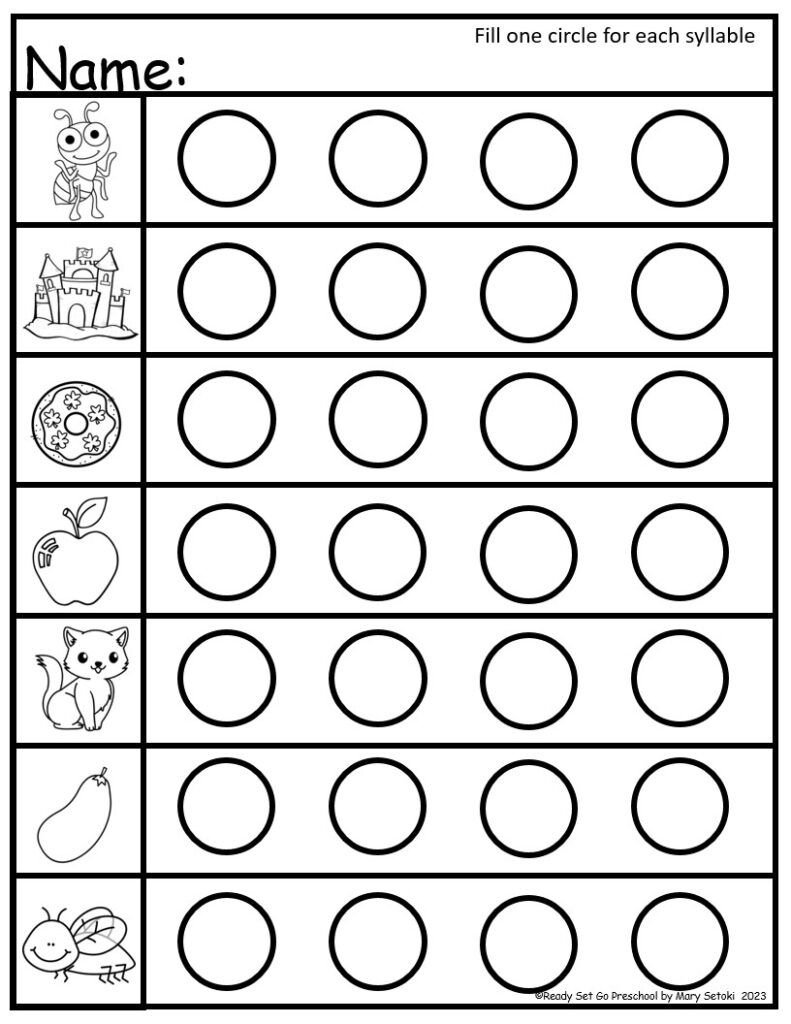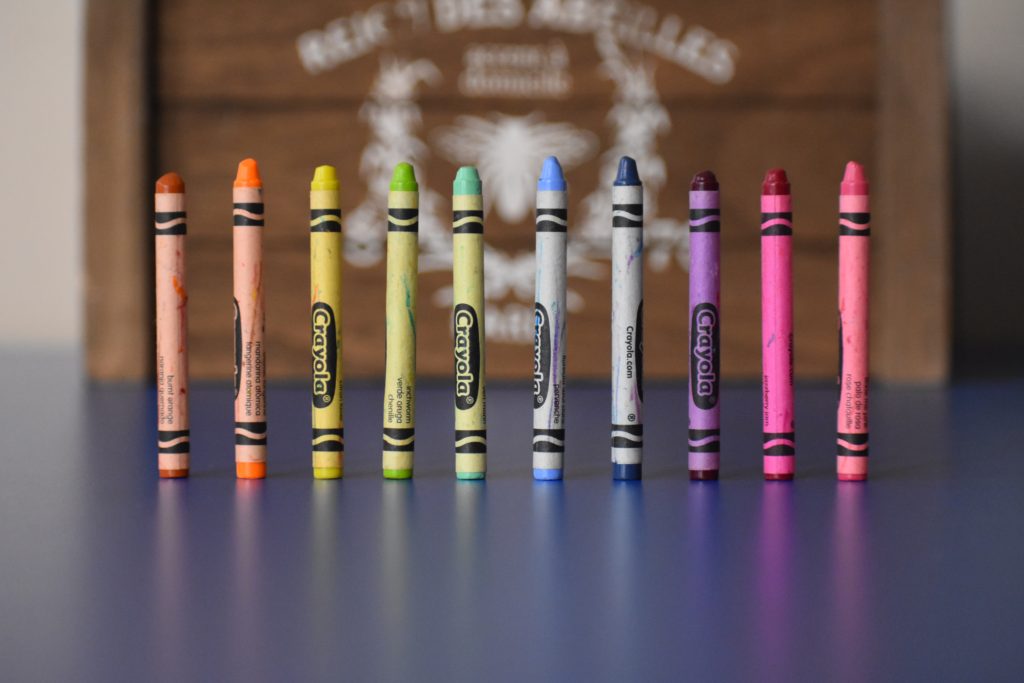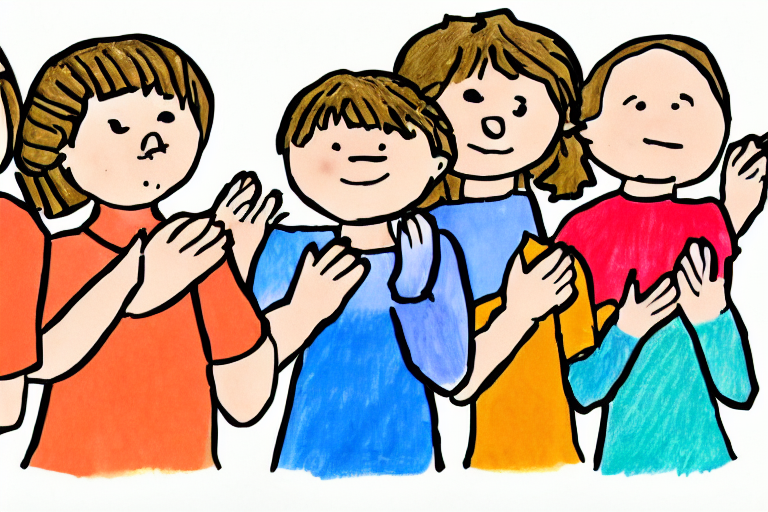Phonological awareness goals or skills should be one of the top priorities for early childhood classrooms (PreK-2nd grade) as well as for parents trying to help prepare their young children for reading and academic success. A Fun way to introduce these essential literacy skills to young children is with phonological awareness games. Phonological awareness activities are an interactive way to help kids develop an understanding of the sounds of language and recognize rhyme and alliteration. These phonological awareness skills can help kids become better readers, spellers, and writers. In this blog article, we will explore the best phonological skills for beginners, how to introduce these skills to children, fun activities to enhance these skills, and tips for parents and teachers on how to support children who are learning these skills.

What Is Phonological Awareness?
Phonological awareness is the ability to recognize and manipulate the individual sounds of spoken language. It is an essential component of reading and spelling instruction and can help children become successful readers.
Phonological awareness activities can be implemented from the early years of a child’s education. Activities such as clapping out the syllables in words, counting words in a sentence, segmenting and blending words, playing word games and singing nursery rhymes are all useful ways to develop phonological awareness. These activities benefit children with different learning styles, as they are fun and engaging and can easily be adapted to suit different ages and abilities.
How To Introduce Phonological Awareness To Your Child
Phonological awareness is an important part of language development and literacy skills. It’s the ability to identify, manipulate and recognize the individual sounds that make up language. While it doesn’t come naturally to all children, it is a skill that can be taught and practiced. Here are some ideas for introducing phonological awareness to your child.
- Start with counting the words in a sentence. This can also help children to develop an understanding of words and their meanings, and can foster the development of other literacy skills.
- Rhyming activities are a great way to introduce phonological awareness to children. This can be done through songs, stories, poems, or even silly wordplay.
- Alliteration involves using words that begin with the same sound. Making up sentences with words that start with the same sound, or making up nonsense words that begin the same to the tune of your favorite song will add some fun and giggles to your practice.
- Break Down Words Into Syllables. Start with one and two syllable words, and then add three and four syllables. Remember that syllables must have a vowel sound. As children are learning to clap out syllables they will have a tendacy to try to bread down one syllable words by clapping “d-og” instead of “dog”.

Fun Activities To Enhance Phonological Awareness
When it comes to helping children develop their phonological awareness skills, it is important to make sure that the activities are fun and engaging. There are a number of phonological awareness goals, games and activities that can be used to help children become more aware of the sounds that make up language. These activities can be tailored to suit a variety of ages and language levels. Here are some fun activities to help children enhance their phonological awareness skills:
Counting words in a Sentence
Counting words in a sentence will help your children gain an understanding and words and how they fit together. This is also very similar to how they will count syllables and is a very good place to begin. Here is an example of a fun game. The child draws a picture card from the pile. The teacher makes up a sentence using that word. The child counts the words. If they are correct they move forward that many places. If they are not correct, they move back one place.
Rhyming Word Games
Introducing students to rhyming words is a fun way to teach them about phonological awareness. Play a matching game with words that rhyme. Play thumbs up (for words that rhyme) or thumbs down (for words that don’t rhyme). Name pairs of words, some rhyme and some do not rhyme. Children show thumbs up or thumbs down. Use these “Minute Task Cards” to fill those wasted minutes throughout the day. Read rhyming books and have children raise their hand, or some other action every time they hear rhyming words.
(to the tune of Mary Had a Little Lamb)
Rhyming words all end the same,
end the same, end the same,
Rhyming words all end the same
they sound like ____ and ____.
Beginning Sound Sort
(alliteration)
You can help students focus on individual sounds in words by having them sort words into groups based on their initial sound. Making a game of sorting picture cards that all begin with the /d/ sound such as duck, dinosaur, dog, and donut. When children are sorting pictures you can have them “bounce” the first sound such as “d d d duck”. By repeating the sound, they are focusing on that sound and are better able to distinguish when they find a word that does not start the same.
Clapping Syllables
Clapping syllables or doing other actions such as the game, “Clap it, slap it, stomp it, jump it” add a multisensory aspect to your children’s learning. Try to involve as many senses as possible in an activity. This will help to ensure better retention. Play a sorting game and have children say whether the card they take from the pile has 1, 2, 3, or 4 syllables. Although this activity is a worksheet, my students love using dot painters to tap out the syllables on these pages. Worksheets are a great way to show what children know. Be careful not to overuse them for busy work.
Tips For Parents On Supporting Phonological Awareness Development
Parents play an important role in the development of a child’s phonological awareness. As parents, you can support your child’s phonological awareness development by incorporating phonological goals, games and activities into their daily routine. Here are a few tips to help your child grow phonological awareness skills:
- Familiarize yourself with phonological awareness skills.
- Read to your child as often as possible.
- Talk about the sounds that words make. Point out rhyming words when you hear or read them. Point out words that start the same. When you hear an interesting word, ask how many syllables are in that word.
- Sing with your child or at least play children’s music. Most songs include a lot of rhyming words and oftem some fun silly wordplay.
Have Fun with Words!
We know that kids will learn best when they are engaged. Phonological awareness goals, games and activities can make learning fun and will keep your children engaged. Remember that the more senses that you can add to an activity, the easier it is to remember that concept.
